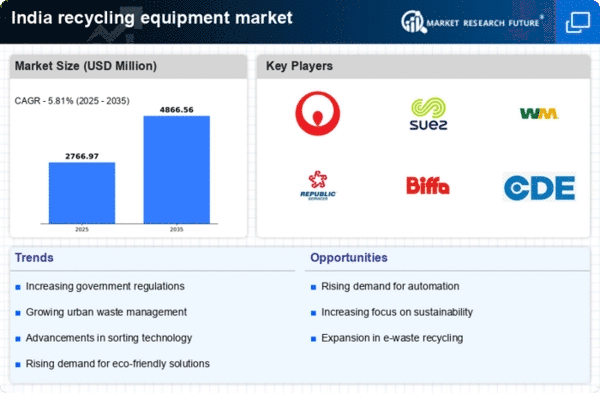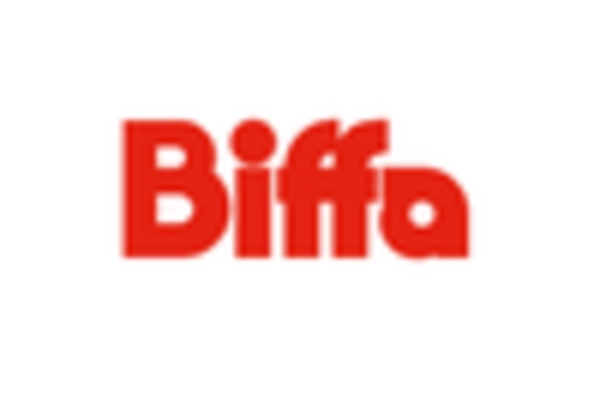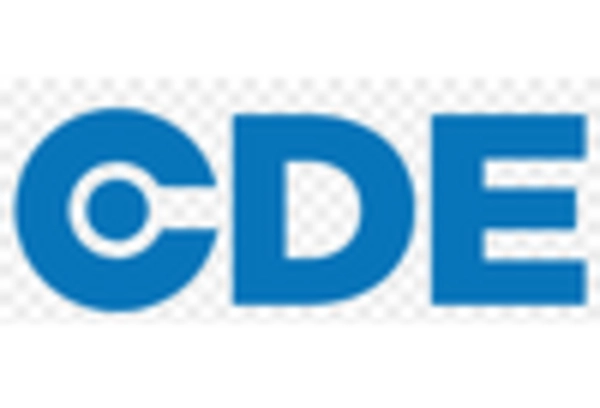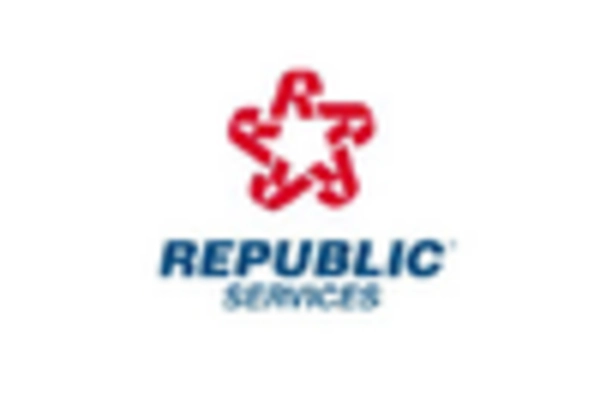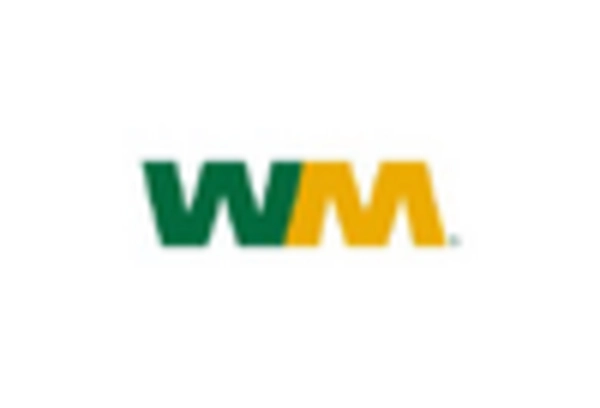Rising Waste Generation
The increasing volume of waste generated in India is a primary driver for the recycling equipment market. As urbanization accelerates, cities are witnessing a surge in waste production, with estimates suggesting that municipal solid waste generation could reach 165 million tonnes by 2030. This growing waste crisis necessitates the adoption of advanced recycling technologies to manage and process materials efficiently. The recycling equipment market is poised to benefit from this trend, as municipalities and private sectors invest in machinery capable of handling diverse waste streams. Furthermore, the need for effective waste management solutions is underscored by the government's push for sustainable practices, which may further stimulate demand for innovative recycling equipment. Consequently, the rising waste generation in India appears to be a significant catalyst for growth in the recycling equipment market.
Growing Consumer Awareness
Consumer awareness regarding environmental issues is on the rise in India, significantly impacting the recycling equipment market. As individuals become more conscious of their ecological footprint, there is a growing demand for sustainable practices, including recycling. This shift in consumer behavior is prompting businesses to adopt more responsible waste management strategies, which in turn drives the need for advanced recycling equipment. Surveys indicate that over 70% of urban consumers are willing to pay a premium for products made from recycled materials, suggesting a strong market potential for recycled goods. Consequently, manufacturers of recycling equipment are likely to respond to this demand by innovating and enhancing their product offerings. The increasing consumer awareness not only influences purchasing decisions but also encourages companies to invest in efficient recycling technologies, thereby fostering growth in the recycling equipment market.
Regulatory Framework Enhancements
The evolving regulatory landscape in India is shaping the recycling equipment market. Recent legislative measures aimed at promoting waste segregation and recycling have created a conducive environment for the adoption of advanced recycling technologies. The Plastic Waste Management Rules and the Solid Waste Management Rules are examples of regulations that mandate recycling practices, thereby driving demand for specialized equipment. As compliance becomes increasingly critical for businesses, investments in recycling machinery are likely to rise. The market may witness a shift towards more efficient and automated recycling solutions, as companies seek to adhere to stringent regulations. This regulatory impetus not only fosters innovation within the recycling equipment market but also encourages collaboration between manufacturers and waste management entities, potentially leading to enhanced operational efficiencies.
Increased Investment in Infrastructure
Investment in recycling infrastructure is a crucial driver for the recycling equipment market in India. The government has recognized the need for robust waste management systems and is allocating funds to develop recycling facilities across the country. Reports indicate that the Indian government plans to invest approximately $1.5 billion in waste management projects over the next few years. This financial commitment is expected to enhance the capacity and efficiency of recycling operations, thereby creating a favorable environment for the recycling equipment market. Additionally, private sector participation in infrastructure development is likely to increase, as companies seek to capitalize on the growing demand for recycling services. The combination of public and private investments may lead to the establishment of state-of-the-art recycling facilities, propelling the market.
Technological Innovations in Recycling
Technological advancements in recycling processes are transforming the recycling equipment market in India. Innovations such as artificial intelligence, machine learning, and automation are enhancing the efficiency and effectiveness of recycling operations. These technologies enable better sorting, processing, and recovery of materials, which is crucial in a country where waste composition is diverse and complex. The integration of smart technologies into recycling equipment is likely to improve operational efficiencies and reduce costs for businesses. Furthermore, as the demand for high-quality recycled materials increases, manufacturers are compelled to invest in cutting-edge technologies to remain competitive. The ongoing technological innovations in recycling not only streamline operations but also contribute to the overall growth of the recycling equipment market, positioning it as a vital component of India's sustainable development agenda.


